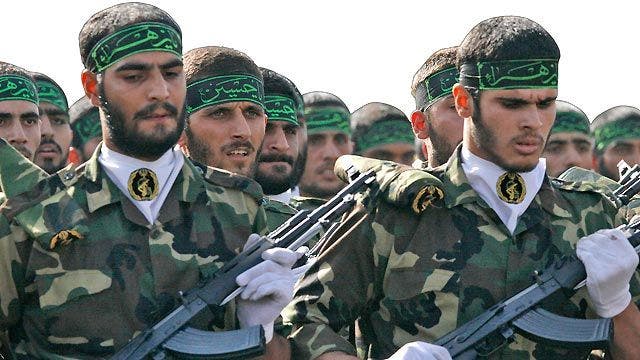A sobering Pentagon assessment of Iran’s military capabilities prompted the top elected Republican in Congress to criticize President Obama for not doing enough to check the threat posed by the Islamic regime.
“The threat from Iran is real,” House Speaker John Boehner, R-Ohio, told reporters on Capitol Hill on Thursday. “It's real for our closest ally, Israel, and it's real for all of the countries in the region.”
Boehner cited the passage of a Iran sanctions package by Congress and suggested Mr. Obama had not fully exploited it. “We gave the president a full toolbox of tools to use, sanctions to use, to help bring the Iranians to heel,” Boehner said. “The president ought to use more of the tools that were given to him to get Iran to declare that they're not going to produce nuclear weapons.”
Iran has, in fact, declared many times that it has no intention of producing nuclear weapons. But inspectors for the United Nations nuclear watchdog, the International Atomic Energy Agency (IAEA), have concluded that Iran’s nuclear activities, far from being aimed exclusively at a civilian energy program, contain a “military dimension” that suggests the regime is developing a nuclear weapons capability.
Tehran has faced a decade’s worth of U.N. Security Council reprimands and international sanctions aimed at compelling the regime to halt its enrichment of uranium and other nuclear-related work. But several rounds of high-level talks between Iran and Western powers have failed to produce any breakthrough in the impasse.
“This administration has been very clear and very strong on the issue of Iran and its military and nuclear capabilities,” said Pentagon Press Secretary George Little on Thursday, adding that President Obama and his aides have succeeded in “developing widespread international consensus to bring pressure to bear on the Iranians, to help impose sanctions that are biting on the Iranian regime.”
An unclassified report by Defense Secretary Leon Panetta, prepared in April and sent to four congressional committees on June 29, provided lawmakers with an overview of a regime making large strides in virtually all conventional, unconventional, and nuclear categories. It was first obtained by Bloomberg.
“Iran’s principles of military strategy remain deterrence, asymmetrical retaliation, and attrition warfare,” the report said. It focused most extensively on the regime’s inventory of ballistic missiles, already the largest in the Middle East, and warned that, with foreign assistance, Iran may be able to test-fly an inter-continental ballistic missile (ICBM), capable of striking American soil, within three years’ time.
That point struck analysts as especially noteworthy, because such a capability, if matched with the ability to produce a nuclear warhead that could be fitted onto the ICBM, would effectively make Iran a nuclear-armed power.
“This report talking about an intercontinental ballistic missile being flight-tested possibly as soon as 2015 just adds another reason why we need to settle [the international dispute over Iran’s nuclear program] sooner rather than later,” said weapons expert David Albright of the Institute for Science and International Security in Washington. “I would assess that they have the intention to build a nuclear weapon, but they have not made a decision to do so.”
The Panetta report also saw no let-up in Iran’s longstanding support for Mideast terror groups, saying Tehran continues to supply men, money, training, and even sophisticated weapons systems to some of the world’s best-known terror groups: Hamas, Hezbollah, the Palestinian Islamic Jihad, and the Taliban, among others.
To “offset” the impact of international sanctions – including a European Union embargo on the purchase of Iranian curde oil that took effect July 1 – the DOD report said Iran has been expanding its defense and commercial ties with African and Latin American countries.
Edited By Cen Fox Post Team




































